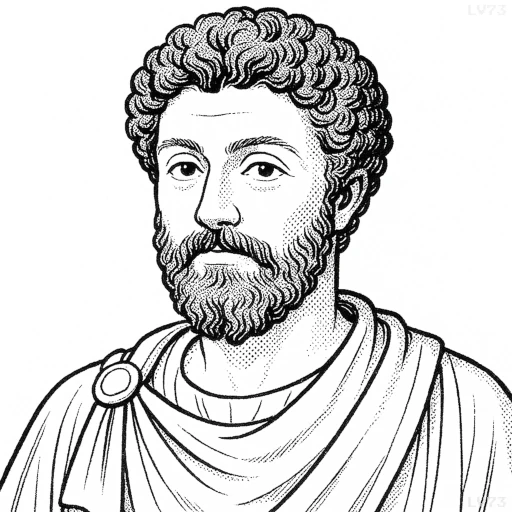“We ought to do good to others as simply as a horse runs, or a bee makes honey, or a vine bears grapes season after season without thinking of the grapes it has borne.”

- April 26, 121 – March 17, 180
- Roman Empire
- Roman Emperor
table of contents
Quote
“We ought to do good to others as simply as a horse runs, or a bee makes honey, or a vine bears grapes season after season without thinking of the grapes it has borne.”
Explanation
In this quote, Marcus Aurelius encourages us to perform good deeds naturally and without expectation of reward or recognition. Just as a horse runs, a bee makes honey, or a vine produces grapes without thought of personal gain, we should act with virtue and kindness as a natural part of who we are. Aurelius emphasizes that selfless giving—doing good for others without calculating the benefit to ourselves—is the ideal way to live. The emphasis here is on the act of goodness itself, not on the outcome or the recognition that might follow.
Aurelius, a Stoic philosopher, believed that virtue should be practiced for its own sake, not for external rewards. For him, the true measure of a person’s character is not in how they are praised for their actions, but in the integrity with which they carry out those actions. This perspective remains important today, where acts of kindness and service can sometimes be overshadowed by the desire for recognition or material reward. Aurelius’ reminder encourages us to return to a purer, selfless mode of doing good, where the act itself is the reward.
In practical terms, this quote teaches us to approach acts of kindness and service with humility and without expectation. For example, helping a colleague or friend, contributing to a cause, or even small daily gestures of kindness should be done with no need for praise or acknowledgment. By cultivating this mindset, we align our actions with virtue and genuine care, fostering a life marked by meaningful, selfless contributions to the well-being of others, much like the natural world does without thought of return.
Would you like to share your impressions or related stories about this quote in the comments section?




